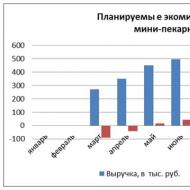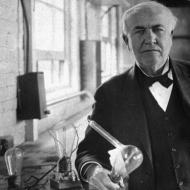
Burger King crushed poppy seeds with a Whopper. The Hooligan King: How shocking helps Burger King's business in Russia There is no arguing about the “tastes of members”
This year we relaunched the AdIndex Print Edition magazine - new cover, new design, new concept. “People and Figures”: analytics and interviews with marketers and top managers of the advertising market. The cover features significant industry figures.
Ivan
Shestov,
Burger King Russia
Ivan Shestov, marketing director of Burger King Russia, spoke about provocative marketing, Russian creativity and the measurements of online advertising for the “Close-up” column in the Adindex Print Edition magazine.
Nothing distorts a product idea like this like an attempt to cram a lot of messages into it. “It’s inexpensive, tasty, fun, and you also need to show that this is a product for a friendly company” - brrrr, in my opinion, this is real hell for anyone, even the best creative in the world.
Working in the marketing of transnational corporations leaves a certain professional imprint. In my experience, there is very little initiative in such companies. This is not because bad specialists work there (it’s usually the other way around), it’s just that the vertical itself is built in such a way that it’s difficult for a person to prove himself: a lot of approvals, division of responsibilities, internal politics...
The Russian consumer first of all tries to appear richer than he actually is.
Born February 8, 1982. From 2005 to 2007, he was engaged in marketing research at Unilever, then moved to brand management at Kraft Foods (Yubileinoe brand). Later, in 2010, he became Senior Brand Manager at Wimm-Bill-Dann Drinks (owned by PepsiCo), where he worked with the J7 juice brand. In 2011, he joined Burger King Corporation and, in the position of Marketing Manager, became responsible for eight countries in Eastern Europe. Since mid-2012 - Marketing Director of Burger King Russia
Russian creativity. I was responsible for marketing in different countries and had the opportunity to compare advertising markets, so I can say this: I do not agree with those who see a big difference between our market and others. “There are no creative ideas in Russia”, “low quality creativity”, etc. – there is nothing like it even close. Our market is no better or worse than others. As with everything, there are great jobs and bad ones.
But you also need to understand that sparkling creativity is not always necessary for a brand. I see it this way: creativity is like a pink handbag. If you bought it, then inevitably you need a pink jacket, pink tights, etc. to go with it. Speaking of advertising, I don’t think all brands can afford to dress completely in pink and be creative in everything. But the image must be holistic. In this regard, I really like the Post Bank campaign: you can’t call it gushing with creativity, but given the specifics of the brand, the audience, the company that owns the bank, I don’t think that Post Bank needed bright creative. But according to the plan - the strategy, the sequence of messages, the choice of celebrities - the campaign was done brilliantly, in my opinion, with 100% hitting the audience. Colleagues did not try to simultaneously build an image and pump up the audience with functional benefits, but did everything sequentially: first they launched an image campaign, differentiated themselves from competitors, and then began to hit with functional messages with their advantages against other banks.
You can also mention Tele2, which proves that brilliant creativity can be done even with a small production budget.
Reach your consumer- means selling to him, of course. What other options might there be?
Best advertising slogan of all time. I have always been interested in brands that challenged and successfully fought against the market leader. Therefore, I will call “We try harder” (“We try harder than others”) from Avis, created in the early 60s by the Doyle Dane Bernbach agency (now DDB Worldwide). The slogan and concept of the advertising campaign gave the small brand the image of a leader. The company has become the second largest car rental company in the United States after Hertz Corporation.
Provocative marketing– this is an opportunity to make a brand noticeable when there is no money to compete with colleagues in the shop using traditional tools.
I constantly harass my agencies late at night or on weekends. You wouldn't wish such a client on your enemy.
I can't say that Burger King's marketing strategy in Russia is radically different from the global one. Everywhere in the world, Burger King strives to be seen as having the best burgers at an affordable price and with a character that can be described as "cool."
Oddly enough, this “coolness”, “unusuality” is important to the audience - we see this in our research. When I walk at the airport with a Burger King bag, and children or teenagers coming towards me start smiling and making jokes about: “Ha ha, Burger King, you probably have Whoppers in your bag, treat me,” I understand that our brand is definitely more than just food for them. I bet if my bag had the logo of any of our respected colleagues in the shop, it’s unlikely that those guys would show any emotions. And that's important to me, it means that Burger King has penetrated their soul.
12
years in marketing
4
changed companies during work
10
hours a working day lasts
Provocative marketing is an opportunity to make a brand noticeable when there is no money to compete with colleagues using traditional tools
Russian consumer First of all, he tries to appear richer than he really is.
Our advertising landscape is gradually changing, soon the measurements will be taken by VTsIOM, and TV will be sold by a megaseller. I am increasingly inclined to think that it is necessary to choose media in which advertising is impossible to miss. Who now actually watches advertising on TV and doesn’t tune out during the ad block? Does anyone know such people? In the modern world, people try with all their might to avoid advertising, and we, marketers, must look for ways to get people to watch them. That’s why I love formats where the consumer doesn’t have the opportunity to “switch off”: these are non-scrolling YouTube videos or mandatory viewing ads on Wi-Fi. Yes, these ads are annoying, but it's better than wasting money on ads that won't be seen.
ONE-ON-ONE WITH BRANDS
My clothing brand: Can not answer. I'm wearing a logo shirt right now. Burger King. In general, I try not to pay attention to brands when choosing clothes for myself.
My application for work: whatsapp.
If the car , That Nissan. The price-quality ratio is always more important than the brand.
On my desktop There's always a Seth Godin magnet “Create something significant!”
My Icon Brand: IKEA.
There are no dirty tricks in marketing. In a fair fight, the most cunning one wins.
Advertising loses quality and effectiveness, if it is overloaded. There are many studies that show what percentage of the audience reads an advertisement depending on the number of messages in it. And this is a graph with a sharp drop: one message = X people catch it, if two messages - then at least one of them catches half of X, and so on. That is, adding everything that the brand is proud of to the layout does not mean that people will read it.
Reaching your consumer means selling to them, of course. What other options might there be?
INTERVIEW: INNA SMIRNOVA, TASHA ESHNAZAROVA
The Burger King brand is perhaps one of the most noticeable and mentioned in the Russian advertising market.
He never ceases to surprise, amaze, and sometimes even shock the public with his advertising campaigns. Therefore, the editors of NSMI were simply delighted with the opportunity to communicate and ask questions to the person who is at the helm of the forge of creative actions of the brand - director of the marketing department of BURGER KING (Russia), winner of the Russian Media Manager - 2016 Award, Ivan SHESTOV. Ivan told us how he managed to significantly increase the popularity and recognition of the brand in Russia, how important it is to be fast and daring, and how the Russian advertising industry differs from the foreign one.
It's no secret that BURGER KING is always about creative or even provocative marketing campaigns, why was this approach chosen?
You probably know this term - “ad blindness” (the effect when a person filters out advertising and simply does not notice it). I see that the more advertising there is, the more widespread this effect is. What you call “creative and provocative” campaigns is a way for us to break through this advertising blindness.
My marketing budget is several times smaller than that of our colleagues. Competing with them with the number of GRPs is a deliberately losing tactic, so we are looking for other ways to make the brand more noticeable.
Which of the BURGER KING campaigns do you personally consider the most successful (or several), and which was the most effective in terms of metrics?
The most successful was our first advertising campaign in the media, in particular on TV, back in 2013. At that time, knowledge of the Burger King brand was very low, about 25%. When we launched an advertising campaign promoting the functional benefits of our brand (100% fire-cooked beef) through our flagship product WHOPPER, awareness began to grow very quickly. And in the restaurant business, brand knowledge is directly proportional to the number of guests coming. So the growth in traffic and sales was very high.
Also last year, a number of successful projects were implemented. In particular, the “Worst Whopper - be careful not to escalate” campaign gained coverage of 30 million contacts in just 4 days, which, again, instantly worked for sales; this burger (far from cheap) became one of the bestsellers.
What are the special features of working on an international brand? Are marketing activities similar in other countries where you operate? And does BURGER KING Russia have freedom of action?
The special thing is that what you do can (and does!) have an effect on the brand globally. There is a general brand positioning, but the ways in which this positioning is activated varies. Let me give you an example: in America, the Internet is “kind” - many people publish good jokes, praise brands, charities, the most popular public pages are those dedicated to eternal values. If a brand wants to be in the flow, then it needs to be as kind as all the popular content.
Now let’s look at Russia and the public pages that are the most popular here: these are vulgar memes, below-the-belt jokes, etc. In other words, in Russia the Internet is “evil”. And in such an environment, it is very difficult for brands to “be their own” if they talk about eternal values. Therefore, in Russia it makes sense (in my opinion) to convey the fun factor that is inherent in the positioning of the brand on the Internet through the image of a “bad guy”, because it is precisely this image that in this case will seem like “one’s own”.
In January 2010, the Russian division of McDonald's was preparing to celebrate the 20th anniversary of the opening of the first restaurant in the country. The anniversary was spoiled by a competitor: right on the occasion of the holiday, Burger King (BK) launched a viral video on the Internet. The chain had just entered the local market and decided to build on the industry leader (McDonald’s already had more than 200 restaurants in Russia). “It was part of a marketing campaign. That’s what I told the management: it’s McDonald’s anniversary, we have to go out earlier,” admits Yana Pesotskaya, general director of BK in Russia in 2010-2012, in an interview with RBC magazine.
The video was memorable: in the video, BK’s mascot, King King, was passing through customs control at a Russian airport under the amazed gaze of a border guard and in the company of two spectacular companions. Later, the network refused to replicate King’s image, but then he helped solve the problems. With limited resources, the brand increased awareness in a new market among the target audience - “youngsters” aged 14-25. “Burger King was rowdy from the very beginning, a little on the edge. We understood that it would be difficult to advance without aggressive advertising,” explains Pesotskaya. But the goal was to win, so the network was not going to be careful.
The daring strategy worked: Russian BK has been growing at an accelerated pace for several years and in 2017 was recognized as the best master franchisee in the world. In 2018, the revenue of the chain of more than 500 restaurants jumped by 35% (about 29 billion rubles), and net profit increased ninefold (0.9 billion rubles). According to Euromonitor International, BK already has more than 10% of the fast food market (its volume is estimated at 500 billion rubles), the lag behind McDonald’s is less than 8%.
The expansion is supported by shareholders. Initially, the owner of the Shokoladnitsa chain, Alexander Kolobov, undertook to develop the chain in Russia. For the right to be the exclusive franchisee of BK in the country, he undertook to open 750 points, says a source from RBC magazine familiar with the situation. In 2012, VTB Capital became a co-owner of 50% of the network with a willingness to invest $100 million. By 2018, the share of the state bank’s subsidiary had dropped to less than 20%, and more than 36% was acquired by a company associated, according to RBC, with the Ukrainian investment company ICU. Previously, ICU, in particular, was preparing to sell the Roshen factory in the interests of the family of Petro Poroshenko.
BK shareholders do not object to advertising activities aimed at young people. This is great courage on their part, says Ilya Shumsky, regional director of BK in Kazakhstan from 2014 to 2016. According to him, it is impossible to imagine such aggressive marketing in neighboring countries: “In the same Kazakhstan and Azerbaijan, predominantly Muslim countries, there are certain canons of behavior in society and business.”
The current general director of the Russian BK, Dmitry Medovy, in an interview with Business Petersburg, assured that the company also has clear boundaries between the concepts of good and evil. But in recent years, the brand’s advertising has more than once provoked scandals - due to slogans like “Be careful not to escalate”, playing on the image of a rape victim and other methods on the verge of public morality. The company has taught users that BK is cool, Pesotskaya explains: “Conventionally, you celebrate a child’s birthday at McDonald’s, and at BK you meet with a group of friends.”
Moreover, loud statements, for example, about the purchase of the Aurora cruiser or the release of nugget-flavored condoms, as a rule, remain declarations. Only one example of the implementation of such plans was found in the public domain: in 2018, BK registered an application with Rospatent for the production of goods based on memes based on the song “September 3” by Mikhail Shufutinsky. Rarely do real complaints follow the hype on social networks. According to the central office of the FAS, in the last two years, five complaints have been received about the network’s advertising, and one case has been opened on suspicion of violating the Law “On Advertising.” McDonald's, by comparison, was complained about twice during the same period.
RBC magazine learned from the authors of the provocative BK advertisement how their client manages to remain the main troublemaker in the Russian market and why scandals do not harm business. Dmitry Medovy, Marketing Director Ivan Shestov and representatives of the majority of Russian BK shareholders declined to comment; representatives of the company’s head office did not answer questions. “VTB Group does not influence the operational activities, in particular, the marketing strategy,” a representative of VTB Capital told RBC magazine.
There is no arguing about the “tastes of members”
Burger King first decided to make some noise in the information field in October 2015. The company proposed to Roscosmos to send a cheeseburger in a tube into orbit: the letter to the management of the state corporation was signed personally by Medovy. There was no reaction, but the goal was achieved - even business media, for example, the Kommersant newspaper, wrote about the action.

Photo: Yulia Spiridonova for RBC
The idea for the trick came from the Fistashki agency: it won a tender to promote a new product in the BK menu. Fistashki creative director Pavel Targashin comes out of his office for an interview with a “BDSM” sign. “We should have told them that BK actually has such a product. Everyone knows about the cheeseburger from McDonald’s, but almost no one has heard about its namesake from BK,” explains the manager.
Although the team was inspired by the concept of fake news, the cover story was not forgotten. “They even found a specialist in molecular gastronomy and found ten tubes for test samples, which were sent to journalists,” recalls Targashin. Without taking into account creativity, the campaign budget was limited to 10 thousand rubles.
Targashin calls Burger King an open and risky client: “They will often prefer something new to something proven. If we were doing a cheeseburger commercial now, we would come up with something related to VR or artificial intelligence.”
The next Fistashki campaign turned into a canonical example of BK promotion in Russia: to advertise the spicy Whopper, the agency came up with the slogan “Be careful not to escalate!” Targashin assures: the phrase was intended as an April Fool's joke, it was supposed to be reinforced by YouTube videos featuring bloggers eating “evil” burgers in tears. But on March 30, the customer, without warning the agency, launched a campaign: banners appeared on the start page when connected to Wi-Fi in the Moscow metro. The concept of the prank failed, but everyone was saved by the influx of users into restaurants. “We were lucky that in April 2016 there were no other high-profile events like the annexation of Crimea,” explains Targashin. The resonance was also increased by checking the FAS slogan (no violations were found). A week later, BK himself came to the agency’s “help” - the company launched a new hooligan promotion for ice cream with the call “Let’s get drunk!”

The creative director of Fistashki does not hide the “Be careful not to escalate!” The agency was repeatedly scolded by colleagues. The main counterargument is statistics: that same Whopper in Moscow ran out four days after the start of sales. “It was flirting with the audience, which reacted in the spirit: “But I’ll go and escalate!” - says Targashin.
Less successful was the attempt to joke about the American Film Academy, which was being accused of discrimination against African Americans. Fistashki, who ran the BK social network in 2016, published a provocative joke on VKontakte and Facebook about how film academics prefer a Whopper “on a white bun” with an even more provocative twist: “We have learned the tastes of members of the film academy.”
“After publication, we realized that the phrase ‘the tastes of members’ is not something that should be associated with food, and we adjusted the wording,” says Targashin. The mistake had to be played up as a joke. There were no consequences, the manager assures: BK, on the contrary, liked how Fistashki resolved the situation. But the European office of the customer did not appreciate the humor - the post was deleted. True, not because of the “members”, but because of the incorrect presentation of the topic of discrimination.
Fistashki has not cooperated with BK since 2017. But the proven promotion strategy was picked up by a new contractor - the GlavPR agency.
Subtle intelligent humor
“Instead of apologizing, you need to interrupt the jamb with even crazier news - come up with new rubbish,” Oleg Voronin, general director of GlavPR, shares the secrets of his profession with RBC magazine. He speaks highly of the agency’s main client: “Except for BK, everyone on the market is a prick. They want to do the same, but they are afraid.”

Photo: Yulia Spiridonova for RBC
GlavPR put scandalous shares from BK on stream. “The consumer keeps in mind five to seven topics from the news flow, we make sure that the customer is part of these news feeds,” says the head of the agency. His subordinates have about 30 shares on their account for BK. With rare exceptions, the campaigns are absolutely not vulgar, Voronin insists, although among the creations of GlavPR, for example, an offer to singer Olga Buzova to become the face of the slogan “In your mouth all year round.” Taboo topics include politics, religion, the national question and sexual minorities, as well as jokes about BK employees, the interlocutor of RBC magazine lists.
He calls the agency's humor subtle and intelligent. Requests for it from BK until July 2018, when the parties interrupted cooperation, came approximately twice a month. This was followed by brainstorming, as a result of which the copywriters generated up to 50 ideas. The five most successful were offered by BK. He made a choice, and the agency accompanied the action with “evidence” - wrote an “official” letter, a complaint, or produced a test sample. To the same Buzova, during her divorce from football player Dmitry Tarasov, BK sent a burger with horseradish sauce in a box with the inscription “Big horseradish for Olga Buzova.”
The client set strict KPIs for the agency: the campaign must be covered by the top 5 cited online media from the Medialogy rating for the previous year. If the goal was met, GlavPR received 600 thousand rubles, for three “hits” - 350 thousand, and for four misses received nothing.
The topic of advertising that Voronin does not like is attacks on McDonald’s: “American marketer Jack Trout said that market participant No. 2 should always attack No. 1. BK likes this technique. And although I am not a supporter of this approach, I understand that out of five ideas the customer will choose the one that trolls McDonald’s.” This is how the slogan “PSHLNH, MKDNLDS” and the demand to ban the distribution of the film “It” were born due to the resemblance of the main villain to the mascot Ronald McDonald. General Director of McDonald's in Russia Mark Carena, when asked why the company does not respond to such promotions, told RBC magazine: “Our attention is aimed at providing visitors with high-quality products at an affordable price.”
Voronin compares BK’s strategy in case of marketing crises with the “Fortress” plan, in which security forces guard important objects without leaving the building. “If something unfavorable to the company happens, not a single journalist will receive a comment,” says the general director of Glavpiar. As an example, he cites the story of BK’s attempt to express condolences to the families of the victims of the fire in the Winter Cherry shopping center. In one of the restaurants, on the initiative of the director, a screensaver “We mourn Kemerovo” appeared, and next door there was a poster “Cooking with fire since 1954.” While social networks were buzzing about mockery, the company maintained a regime of silence. As a result, the critics calmed down after a couple of days, and no explanation was required from BK.
But it was not always possible to remain silent. In the summer of 2018, news about BK’s offer to Russian women to get pregnant from football stars during the World Cup spread throughout the world’s media. According to Voronin, the head office demanded an apology from the Russian division. The problem turned out to be the global coverage of the news feed, says the general director of Glavpiar: according to him, the leaders of the local BK are constantly ripping off the franchise owners, but as long as the scandal does not go beyond the country, they have something to oppose - sales dynamics.
In the Russian office of BK itself, the main lobbyist for high-profile actions is Marketing Director Ivan Shestov, says Voronin: according to him, the division’s general director, Dmitry Medovy, absolutely trusts the top manager.
Hard-boiled eggs
Honey himself participated in scandalous actions. In one of the videos, the manager appeared in the company of characters reminiscent of Ronald McDonald and KFC mascot Colonel Sanders. After Medovoy’s words “Because our hens have cooler eggs,” the plot of the TV and Internet versions of the video was divided: on TV “Sanders” looked under the table, on the Internet he found a chicken with male testicles under the table, and “McDonald” asked to touch it. “In our communications, we focus on guests, rather than interaction with other market participants,” commented the head of marketing at KFC Russia, Elena Pishkova, on BK’s attacks.
This video is the creation of another BK contractor, SHMA Agency! “The price of provocative marketing is when the finished video may be taken off the air or not put into rotation. And BK is an example for others. They work on the principle: “We’ll get involved, and then we’ll figure it out,” says the CEO of SHMA! Oleg Shestakov.

He also notes the high level of trust between Medov and Shestov: when the marketing director asked the general director of BK to appear in a video about eggs, he agreed after some persuasion and, in the end, clearly played the scene and left with the words: “Then do what you want,” recalls Shestakov . According to him, BK is the only client for whom funny ideas are full-fledged working material.
Creative Director of SHMA! Sasha Ardabyev describes the interaction scheme this way: BK receives a brief for the product, after which he and Shestakov go to the restaurant and order this dish. “We try, study, monitor the reaction of the guests and develop an idea based on this,” explains the manager.
Because SHMA! specializes in videos, they have to come up with less provocative provocations “for TV”: for example, a video with a song about nuggets based on the hit “Lilies of the Valley” turned out to be viral. The melody enlivened the video sequence, previously released to the BK agency. “Lilies of the Valley” defeated both the “nuggets in the snow” and “nuggets in the vending machine crying” versions, as well as the ideas of rap accompaniment and hypnotic audio, Shestakov lists.
Cooperation with BK does not always involve a large budget for filming: for example, the CEO of SHMA had to personally appear in another TV commercial! Shestakov explains: working with BK is more about adding quality to your portfolio than earning big money. In the future, the company will have to take provocation to another level, the head of SHMA is sure! “After all, there are different types of provocation: with your pants down, and with white doves. BK is a growing brand and social responsibility must emerge. This will lead to audience growth,” says Shestakov.
"Pump on the Whopper"
Another agency, Possible (part of the British WPP group), has been thinking about softening BK’s marketing rhetoric since the spring of 2018. First, Possible won a tender for advertising an eggburger (a video with the slogan “Approved by Russians!”), and later invited the client to think about “more positive communication, since the market is tired of aggression,” says the agency’s account director Anastasia Gorshkova. Her colleague, creative director Maryam Akhunova, highlights another drawback of BK campaigns - women react poorly to them.
$4.6 billion
was the revenue of the RBI holding (which includes Burger King) in 2017
RUB 27.7 billion
VTB estimated Russian Burger King in 2018
31%
was the average revenue growth of Russian Burger King in 2015-2017
Sources: SPARK, company data
The agency’s first attempt to play up an alternative brand image was the “Blood for Blood” event for donors in Yekaterinburg, timed to coincide with Halloween. The number of donors who were given a robe spattered with artificial blood and a green Whopper in the city has doubled, Possible managers say. Moreover, in order to reduce the usual level of BK pressure, they had to dissuade the client from the version of the slogan “Pump on the Whopper,” recalls Gorshkova.
However, other advertising from Possible is consistent with the established image of the brand. On the same Halloween, the agency offered the company to buy land for a conditional cemetery, where anyone could bury something bad. Possible was also preparing a new format for BK - integration into the TNT4 channel show “Prozharka,” where comedians joke about stars. “Burger King did not limit us in what could serve as a subject for jokes,” says TNT4 creative director Ivan Kalashnikov. “Roasted” in the release of “clown Roma” and “Colonel Sanya” - another greeting to BK’s competitors. “In the first version of the script, we wanted to remove a couple of harsh jokes. And BK marketing asked: “What kind of children's party is this?” — Akhunova laughs.
Cooperation with the channel did not force the company to fork out money. “It helped that Gavr Gordeev (director of TNT4. - RBC) and Kalashnikov were interested in integration. They even reduced the fee of presenter Ilya Sobolev,” notes Gorshkova. According to her, production costs (excluding TNT4 fees and agency work) amounted to about 2 million rubles. The TNT4 press service refused to comment on commercial issues. Possible decided to make some noise in honor of September 3, a date immortalized in Internet folklore by Mikhail Shufutinsky. A week before “Day X,” BK sent the agency a task to do something cool. As a result, the team prepared the campaign “Shufutinsky Whopper, roasted over a fire, with the addition of rowan sauce and wrapped in a calendar sheet.” BK did not have time to produce the product outside of the rowan season, but posted the announcement in public: one user even complained in the comments that he was unable to buy the advertised product.
The next campaign for BK Possible is scheduled to launch in December. “It is not connected with current things, hype. But it is built on purely Russian insight,” says Akhunova. When asked whether the good BK will turn into a copy of its sworn competitor, Possible employees answer negatively. “Even if Burger King came to the hospital to do something good, he will open the door with his foot,” Gorshkova promises.
“Draw yourself, we’re getting popcorn”
While some contractors are planning a less shocking strategy for BK, others are working to secure the brand’s image as a market provocateur. The latter includes the MDK agency, co-owner of the famous VKontakte public page. “Ivan Shestov regularly tries to show us off with messages like: “I thought you were more creative.” But we are immune to such things,” says MDK Managing Director Maria Vylegzhanina.

Photo: Yulia Spiridonova for RBC
Since February 2017, the agency has been managing the BK social networks in Russia. MDK demarcates work with its public. “The goal of the public is to generate hype, increase subscribers, and maintain popularity. With BK we do the same, but within the boundaries of the brand book,” explains Vylegzhanina. MDK learned these boundaries after winning the tender. “Since the head office sometimes pays attention to the Russian one, it turned out that even the image of a girl in a swimsuit is impossible,” says the agency manager.
The first stress test for MDK was the scandal over the use of the image of Diana Shurygina in BK’s public pages, a rape victim whose story was covered in detail by the media. The “On the bottom” meme advertised the “Second Big King for free” promotion. A day later, the post was deleted: according to Vylegzhanina, the warning came from the BK head office. After the incident, MDK insisted on reviewing the work regulations. “If before this, an “ok” in the chat was enough for publication, then after that, each publication is agreed upon in writing, and especially risky ones - in a separate form with a picture and copyright, where it is indicated that the customer bears all responsibility,” says Vylegzhanina. BK introduced fines for unauthorized publications - 1 million rubles. for the post
The revision of the contract led to a decrease in the profitability of the project for the agency, MDK's managing director complains. The total volume of the contract is 20 million rubles. in year. In 2018, MDK increased prices for the client by approximately 25%.
Vylegzhanina claims that the meme with Shurygina was approved by the customer, and she herself saw the picture published. “Then I asked my colleagues: “What is your story with graves (in 2015, MDK published news about the death of singer Zhanna Friske with the text “I’ve never been to a grave.” RBC) didn’t teach me anything?!”
The manager praises BK's moral readiness to work in MDK's tough style. The same meme about Shurygina, according to her data, provoked an increase in sales of the advertised product, although the network never discloses the effect of marketing activity. Since MDK took over the management of BK’s public page on VKontakte, the number of subscribers has grown from 800 thousand to 2.2 million.
Vylegzhanina confirms that BK is “not the most profitable client.” But MDK was still promoted for one generous share: the network spent 10-15 million rubles. for the bot and “I’ll smoke you” stickers. More often, the agency is given a “minimum” budget - about 100 thousand rubles. For this money MDK is ready to make a couple of memes and promos. “Shestov sometimes finds other performers. We counter: at least draw it yourself, we’re getting popcorn,” says Vylegzhanina.
The agency team has repeatedly wondered whether to continue working with BK, the manager admits: “If we part ways, we won’t lose anything. The question is not about money, but about the moral readiness to lead the client, to work with his creativity.” No decision has been made for 2019 yet. According to the managing director of MDK, BK should “continue to be aggressive, laugh, provoke people to react, but move away from the toilet theme.” “We proposed our vision for the brand two years ago, but BK did not implement it. Although, in my opinion, the strategy should be for at least a year. It cannot yet be said that conceptually it exists,” concludes Vylegzhanina.
Still from the video
A Burger King commercial in which the chain's flagship product, the Whopper, crushes a poppy while the voiceover says, "This is a poppy. He was once popular, but his time has passed!”, was not broadcast on major TV channels.
The video, which clearly hints at the superiority of Burger King's products over McDonald's, was created by the agency's creative team.
The company explained that the management of the main TV channels did not allow the video to air, arguing that the content of the advertising video contradicted the editorial policy of the channels. The full version of the video is broadcast only on REN TV, 2x2 and Disney; a shortened version has been prepared for other channels.
“In the video, we drew an analogy of poppy seeds with a bad habit that many people have: even if a person is not entirely happy with something, he continues to use it without considering alternatives. Thus, we communicate that this alternative exists, and it is nearby - it’s time to see it,” commented Ivan Shestov, marketing director of Burger King Russia.
It is worth noting that the firstBurger King launched in Russia last winter and its authors were the creators of the McCann Moscow agency (ADV Group). The authors of the new provocative campaign, as noted above, were colleagues from. It is not known why the client changed the creative team.
However, the position of the sites regarding this conflict is quite clear: McDonald's is one of the largest advertisers in Russia, ranking 32nd in 2012 according to AKAR and TNS Russia (market share - 0.49%). And the position of this player will only strengthen , given that he is the official partner of the upcoming Olympics in Sochi.
The advertising confrontation between Burger King and McDonald's itself has lasted for many years and sometimes takes very offensive forms. For example, in December 2011, Burger King complained about a video shot by the Berlin agency DDB Tribal Group. In the video A little boy is constantly being robbed of food he bought at McDonald's by hooligans. But one day, the boy gets the idea to hide food from McDonald's in a Burger King bag, and the bullies leave the child alone.
Composition of the creative team
General Director - Natalya Stepanyuk
Creativity and project management - Evgeniy Golovan
Art director - Timur Salikhov
TV producer - Anna Sidorova
Curator - Dmitry Levteev
BURGER KING RUSSIA (client)
Marketing Director - Ivan Shestov
Director - Vitaly Shepelev
Producer - Medea Karasheva















